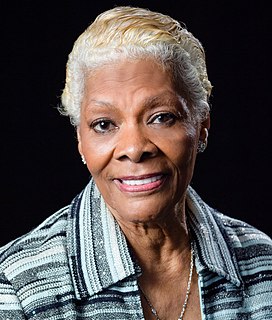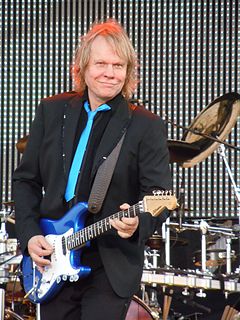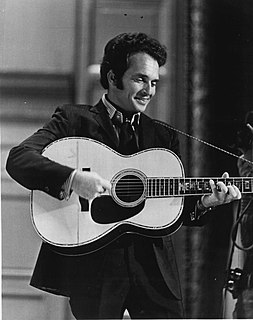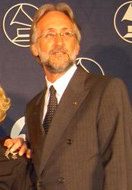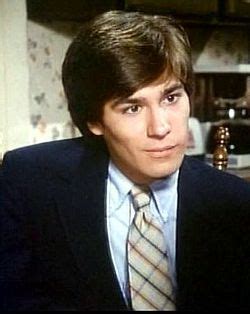A Quote by Dionne Warwick
During the time that my recording career seemed to be in a slump a music called disco came on the scene and literally took over radio stations as well as having radio stations created to play it which sort of negated my music as well as that of some of my peers.
Related Quotes
There are so many conditions to programming in America, where it's dominated by these people that own 800 radio stations that have no idea who to play and who not to play, and they listen to somebody or read somebody else's programming sheet and go by Buck Owens' opinion or something. Eight hundred stations are controlled by some guy that doesn't have a clue as to what to do about music.
You put music in categories because you need to define a sound, but when you don't play it on your so-called radio stations that claim to be R&B or jazz or whatever... All music is dance music. But when people think of dance music, they think of techno or just house. Anything you can dance to is dance music. I don't care if it's classical, funk, salsa, reggae, calypso; it's all dance music.
Artists should re-emphasize performance and de-emphasize recording. You always make more money if you have a healthy performing life than you will if you have even a moderately healthy recording life. Don't make recording the most important thing you do. Make performing the most important thing you do, and then you can make recordings and sell them at your shows, because record labels aren't going to be around to help you get on the radio stations, and the radio stations probably aren't going to play you anyway.
Because U.K. artists aren't compensated when their music is played on U.S. radio stations, U.S. artists aren't compensated when their records are played on U.K. stations based on the fact that there's no reciprocity. If that income came in, our artists would be paying income taxes on it. So if we can get a lot of policy on the radar, that may have some positive influence.
We are extremely proud to represent all of Radio One's stations within the Katz Radio Group. For the past five years we have worked diligently alongside Radio One to build their business in the markets we have historically represented including Houston, Los Angeles, Philadelphia , Raleigh and Columbus. At a time of significant growth in the African American consumer market the addition of the remaining Radio One stations expands our ability to deliver strategic marketing solutions to our agency and advertiser customers.
